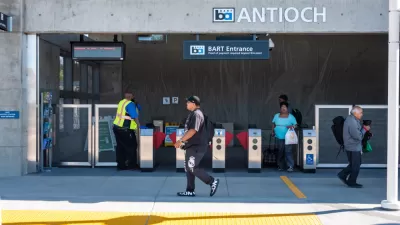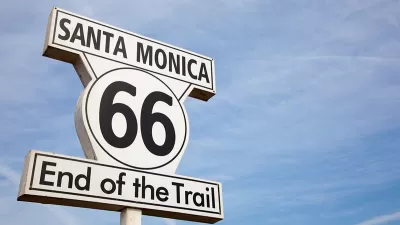Cities that rely on sales and income tax revenues to fund vital local services can expect immediate fiscal consequences from the coronavirus pandemic.

The consequences of the coronavirus pandemic for local government finances depends on whether cities rely on tax sources that respond quickly to economic swings, like sales taxes and income taxes.
The degree to which the fiscal capacity of local governments relies on a healthy economy for revenue depends on the balance of revenue sources, so Michael A. Pagano and Christiana K. McFarland did some analysis to start to anticipate where the economic shock of the pandemic will be felt immediately in the bank accounts of local governments.
“As the crisis unfolds, the impact on cities’ bottom line will be driven not only by overall economic conditions but specifically the parts of the economy where revenue is generated: retail sales, income and wages, and real estate,” according to Pagano and McFarland.
Because the tax structures of cities vary across the country, the consequences of the economic disruption will differ. Cities that rely on property taxes are insulated from the worst effects, for now, according to the article.
The article includes specific information for cities, predicting that Heartland cities like Columbus, Cincinnati, Colorado Springs, and Tulsa can expect the most immediate effects. A map also shows where cities should expect effects in the mid- and longer-term.
FULL STORY: When will your city feel the fiscal impact of COVID-19?

Planetizen Federal Action Tracker
A weekly monitor of how Trump’s orders and actions are impacting planners and planning in America.

Congressman Proposes Bill to Rename DC Metro “Trump Train”
The Make Autorail Great Again Act would withhold federal funding to the system until the Washington Metropolitan Area Transit Authority (WMATA), rebrands as the Washington Metropolitan Authority for Greater Access (WMAGA).

DARTSpace Platform Streamlines Dallas TOD Application Process
The Dallas transit agency hopes a shorter permitting timeline will boost transit-oriented development around rail stations.

Renters Now Outnumber Homeowners in Over 200 US Suburbs
High housing costs in city centers and the new-found flexibility offered by remote work are pushing more renters to suburban areas.

The Tiny, Adorable $7,000 Car Turning Japan Onto EVs
The single seat Mibot charges from a regular plug as quickly as an iPad, and is about half the price of an average EV.

Supreme Court Ruling in Pipeline Case Guts Federal Environmental Law
The decision limits the scope of a federal law that mandates extensive environmental impact reviews of energy, infrastructure, and transportation projects.
Urban Design for Planners 1: Software Tools
This six-course series explores essential urban design concepts using open source software and equips planners with the tools they need to participate fully in the urban design process.
Planning for Universal Design
Learn the tools for implementing Universal Design in planning regulations.
Municipality of Princeton
Roanoke Valley-Alleghany Regional Commission
City of Mt Shasta
City of Camden Redevelopment Agency
City of Astoria
Transportation Research & Education Center (TREC) at Portland State University
US High Speed Rail Association
City of Camden Redevelopment Agency
Municipality of Princeton (NJ)





























